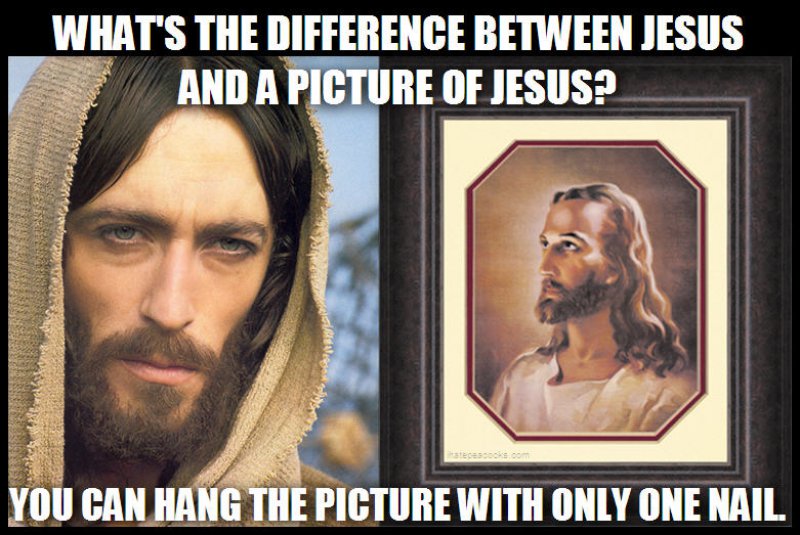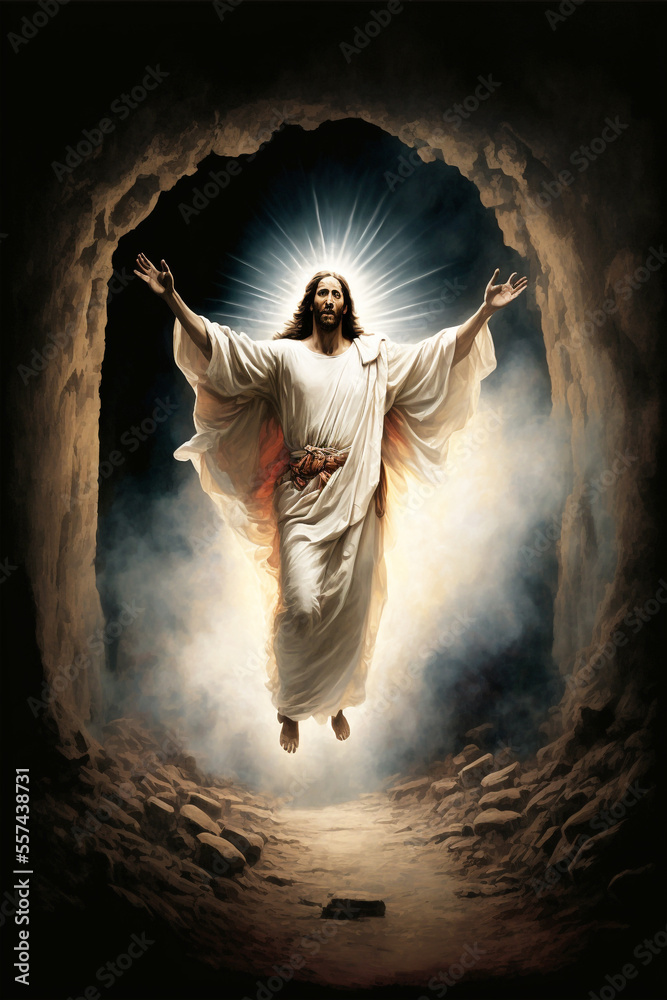Exploring The Controversial World Of Dark Jesus Jokes: A Balanced Perspective
Dark humor has always been a polarizing topic, and when it comes to religious figures, the subject matter becomes even more sensitive. Dark Jesus jokes, in particular, tread a fine line between irreverence and comedy. These jokes often challenge societal norms and provoke thought, but they can also offend those who hold strong religious beliefs. As we delve into this controversial genre, it's essential to understand the context, history, and cultural significance of these jokes. By examining them critically, we can appreciate the art of dark humor while respecting the sensitivities of others.
Humor, in its many forms, serves as a reflection of society's values, fears, and taboos. Dark Jesus jokes, though often controversial, have existed in various forms throughout history. They highlight the tension between sacred and profane topics, encouraging discussions about the boundaries of comedy. This article aims to explore the nuances of these jokes, providing insights into why they exist, how they impact audiences, and whether they can coexist with respect for religious beliefs.
While some may find dark Jesus jokes offensive, others view them as a form of creative expression that challenges the status quo. Understanding the motivations behind these jokes and their potential effects on different audiences is crucial. By examining the cultural and historical contexts in which they arise, we can gain a deeper appreciation for the complexities of dark humor and its role in modern society.
Read also:Discovering The Inspiring Journey Of Jameliz Beniacutetez A Rising Star
What Are Dark Jesus Jokes?
Dark Jesus jokes are a subset of dark humor that specifically targets religious themes, particularly those related to Christianity and its central figure, Jesus Christ. These jokes often incorporate elements of irony, sarcasm, and absurdity to explore sensitive topics. While they may seem irreverent, they often serve as a vehicle for questioning societal norms and religious doctrines. However, their appropriateness remains a subject of debate among scholars, comedians, and religious communities alike.
Why Do People Create Dark Jesus Jokes?
The motivations behind creating dark Jesus jokes vary widely. For some, it's an opportunity to push boundaries and challenge authority, while for others, it's a form of artistic expression. Comedians often use these jokes to provoke thought and discussion, encouraging audiences to reflect on their beliefs and values. Additionally, dark humor can serve as a coping mechanism, allowing individuals to confront difficult or taboo subjects through laughter. Despite their controversial nature, dark Jesus jokes can foster dialogue and understanding when approached with sensitivity and respect.
How Do Dark Jesus Jokes Impact Religious Communities?
The impact of dark Jesus jokes on religious communities depends largely on the audience's perspective and cultural background. For some, these jokes may seem disrespectful or even blasphemous, while others might view them as harmless or thought-provoking. It's important to recognize that humor is subjective, and what one person finds funny, another may find offensive. By acknowledging these differences, we can promote greater understanding and tolerance within diverse communities.
Can Dark Humor Coexist with Religious Beliefs?
The coexistence of dark humor and religious beliefs is a complex issue that requires careful consideration. While some religious traditions emphasize reverence and piety, others allow for a more relaxed approach to sacred topics. In many cases, the key lies in finding a balance between humor and respect. By approaching dark Jesus jokes with an open mind and a willingness to listen, individuals can engage in meaningful conversations that bridge the gap between comedy and spirituality.
Are Dark Jesus Jokes Funny?
Whether or not dark Jesus jokes are funny is ultimately a matter of personal taste. Some people appreciate the clever wordplay and unexpected twists that characterize these jokes, while others find them distasteful or offensive. It's important to recognize that humor is subjective, and what resonates with one person may not have the same effect on another. By embracing this diversity of perspectives, we can foster a more inclusive and understanding society.
Exploring the History of Dark Humor
Dark humor has a long and storied history, dating back to ancient civilizations. From Greek satirists to modern-day comedians, humorists have consistently pushed the boundaries of what is considered acceptable in society. The rise of dark Jesus jokes can be traced to this tradition of challenging authority and questioning established norms. By examining the historical context of dark humor, we can better understand its role in shaping cultural discourse.
Read also:The Fascination With Christina Hendricks A Deeper Look Beyond The Surface
Understanding the Cultural Significance of Dark Jesus Jokes
Dark Jesus jokes hold a unique place in the world of comedy, as they address one of the most revered figures in human history. These jokes often reflect broader societal issues, such as the tension between religion and secularism, or the struggle to reconcile ancient traditions with modern values. By analyzing the cultural significance of dark Jesus jokes, we can gain insights into the complexities of human experience and the power of humor to challenge our assumptions.
What Makes Dark Jesus Jokes Controversial?
The controversy surrounding dark Jesus jokes stems from their potential to offend religious sensibilities. For many, Jesus Christ represents the ultimate symbol of love, sacrifice, and redemption, making him an unlikely subject for humor. However, comedians argue that no topic should be off-limits when it comes to exploring the human condition. This tension between irreverence and respect lies at the heart of the debate over dark Jesus jokes, highlighting the delicate balance required to navigate sensitive topics.
Conclusion: Finding Common Ground
In conclusion, dark Jesus jokes represent a fascinating intersection of humor, religion, and cultural discourse. While they may provoke strong reactions, these jokes also offer an opportunity for reflection and dialogue. By approaching them with an open mind and a commitment to mutual respect, we can foster greater understanding and tolerance within our diverse communities. As we continue to explore the boundaries of dark humor, it's essential to remember that laughter can be a powerful tool for bridging divides and promoting empathy.
Table of Contents
- What Are Dark Jesus Jokes?
- Why Do People Create Dark Jesus Jokes?
- How Do Dark Jesus Jokes Impact Religious Communities?
- Can Dark Humor Coexist with Religious Beliefs?
- Are Dark Jesus Jokes Funny?
- Exploring the History of Dark Humor
- Understanding the Cultural Significance of Dark Jesus Jokes
- What Makes Dark Jesus Jokes Controversial?
- Conclusion: Finding Common Ground
- Table of Contents
As we continue to explore the complexities of dark humor, it's important to recognize the value of diverse perspectives. While dark Jesus jokes may not appeal to everyone, they serve as a reminder of the power of humor to challenge, provoke, and unite. By embracing this diversity, we can create a more inclusive and understanding society, one joke at a time.
In the world of dark humor, the line between irreverence and respect is often blurred. Dark Jesus jokes, with their unique blend of wit and controversy, offer a window into the human psyche and the ways in which we navigate complex emotional landscapes. As we continue to explore this genre, it's essential to approach it with sensitivity, curiosity, and an open mind. After all, laughter has the power to heal, unite, and transform, even in the darkest of times.
Ultimately, the debate over dark Jesus jokes highlights the importance of empathy, understanding, and respectful dialogue in a diverse and interconnected world. By engaging with these jokes critically and thoughtfully, we can appreciate their role in shaping cultural discourse while recognizing the need to respect the beliefs and values of others. Through this balance, we can harness the power of humor to foster greater connection and understanding across communities.
Remember, humor is a universal language that transcends cultural and religious boundaries. Whether through dark Jesus jokes or other forms of comedy, laughter has the power to bring people together, challenge assumptions, and inspire change. As we continue to explore the depths of human creativity, let us embrace the art of humor with an open heart and a willingness to learn from one another.
Article Recommendations

